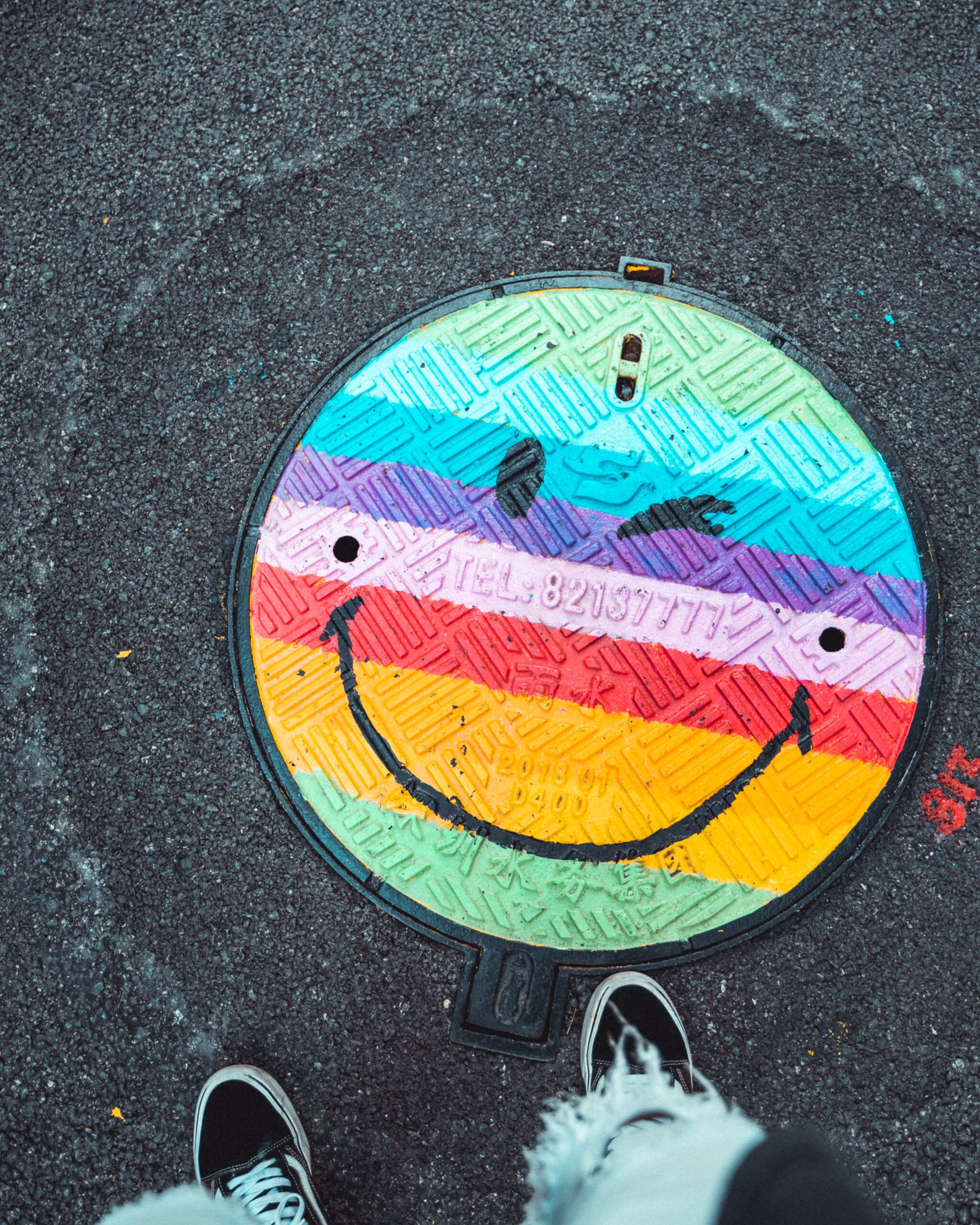“You can only lose something that you have, but you cannot lose something that you are.”
– Eckhart Tolle
As women, we tend to be particularly hard on ourselves, which is why practicing self-compassion is integral to our wellbeing. Yet, even those of us immersed in this deeply therapeutic and healing practice sometimes need a reminder. That was certainly me at the end of December when I lost my wedding ring just months before my husband’s and my 20th anniversary.
I knew there was a problem the second I saw my ring missing and a tingly sensation of fear spread throughout my body. I always placed it in its carved out spot in the wooden ring holder that my husband made me in our DIY gift themed anniversary year of 2020.
After a thorough search—drawers, pockets, laundry bin, car—to no avail, it appeared that the ring was gone. For 19 years I’d managed to keep track of it, and just a few months shy of our milestone 20th anniversary, it was lost. And, I lost it—literally and figuratively.
After the tears dried up, I knew that I had to be more gentle and kind with myself, so leaned into my favorite self-compassion practice. I placed my hands on my heart and took a few deep breaths in and out, knowing that it was okay and that I was okay. Loss is part of the human experience, and no amount of wanting, striving, forcing or controlling can avoid it. I comforted myself with kind words of consolation for the pain I felt, saying internally, “It’s okay sweetie. This could have happened to anyone. Let yourself feel the sadness. Like everything else in life, these feelings will pass.”
The Power of Practicing Self-Compassion
I began to understand the power of mindfulness and self-compassion about a decade ago. At the time, I was a stay-at-home mom and part-time college psychology professor. With life so busy and oftentimes chaotic, mindfulness practices helped me notice my reactions when things felt particularly difficult—like when I was running around trying to complete my to-do list with a totally frantic mind, or when my child was complaining, or when my husband came home late from work the third time that week and dinner still needed to be made.
I noticed that my reactions in those situations were fueled with anger, overwhelm or annoyance. I also noticed my tendency to knock myself down and put pressure on myself to respond the “right way.” This was years before I became a women’s wellness coach, and believed that other women handled these types of situations with more ease and grace than me. While I now understand that we all have our stuff, at the time, these hypothetical comparisons fueled my anxiety and insecurities, and caused me to wonder what was wrong with me.
During that time, I also wasn’t in the habit of being okay with making mistakes and tried to avoid them. Yet, with these new mindfulness practices, I started experiencing something new.
Mindful awareness was broadening my perspective and teaching me that:
- being human is an intense experience
- all humans have intense emotions
- denying intense emotions is impossible because all humans have them—like it or not
- I can sit with difficult emotions and not go around them, ignore them, distract myself from them or blame myself or someone else for them
Understanding How Mindfulness & Self-Compassion Can Help Us Heal
Mindfulness allows us to notice our experience, and the practice of self-compassion reminds us to care about our experience. The two pair beautifully together, and significant change in my life began to occur as I was able to begin understanding and practicing both.
Leaning into these practices helped me understand that I wasn’t a “bad” person for feeling anger and resentment. And, I learned that what really mattered was being able to ride the emotional waves and respond consciously, without saying or doing something I’d later regret. In that process, I began to develop more kindness and gentleness for myself. It felt freeing to know I didn’t have to be perfect, attempt to control an outcome, or reject my mistakes.
Upon embarking on my Chopra Coaching Certification program, I learned about our shadow side, which is something we all have. The shadow side lives in our unconscious; however, it’s possible to gain insight into it by considering qualities you dislike in others. For instance, some qualities, such as impatience, disorganization, or entitlement, may get under your skin when you see them in others because there’s some aspect of these qualities that live within you.
Shining a light on our shadow is how we find our wholeness and light. We would not be complete humans without our shadows, and each and every person is neither good or bad. We’re all simply whole.
The antidote to the shadow side is self-compassion. When we acknowledge our shadow, we can learn to accept and love the parts of ourselves that we are uncomfortable with. We have the capacity to exchange judgment for compassion, and the practice of self-compassion helps us get there.
Perfectly Imperfect
There’s a concept central to traditional Japanese aesthetics called wabi-sabi. It’s sometimes described as the appreciation of beauty that is “imperfect, impermanent, and incomplete,” and is considered the natural state of the world. This concept embraces that even when broken, an object is still perfect and whole, and when it is repaired, can even become stronger and more beautiful. Wabi-sabi can also be applied as a heart-centered experience that values the acceptance of imperfection in ourselves.
Like wabi-sabi, self-compassion involves treating yourself with unconditional love—the broken parts and all. In practicing self-compassion, we stop feeling the need to fix parts of ourselves that feel dark, wounded, missing and unworthy. Rather, we learn to accept ourselves and our wholeness just as we are.
Just as you offer a compassionate word or gesture toward a friend who is in a moment of distress, in practicing self-compassion, you offer that to yourself. Self-compassion is what allows us to soften, feel a much-needed lightness and offer ourselves self-care, especially in our darkest moments.
Practicing Self-Compassion in Everyday Life
The busyness of life can take us away from our essential nature, which is peaceful, calm and loving. Practices, like meditation, mindfulness and self-compassion, help bring us back to our innate wholeness as we wrap ourselves in kindness amidst our challenges, which is paramount to our well-being and happiness. And, the research backs that up! According to one of the pioneers of self-compassion research and study, Dr. Kristin Neff explains that practicing self-compassion leads to greater emotional resilience, more accurate self-concepts, more caring relationship behavior, and less reactive anger.
The compassion we offer to ourselves isn’t based on being special, successful, productive or liked. It doesn’t depend on our finances, fame, weight, career, or any ever-changing external condition. There’s no competition for self-compassion, and therefore no need to outshine anyone else to feel good about ourselves.
Self-compassion is a naturally renewable resource that you can return to in any moment of need. It is part of who you are. It will fill you up with all the things that, as women, we are searching for.
Within the practice of self-compassion, you can strengthen your belief that:
- you matter and are worthy of taking up space
- it’s okay to ask for help and accept kindness from others
- you can celebrate and acknowledge your strengths and talents
- when you rest your head on your pillow, you’ve done your best
- you deserve to savor your accomplishments and the good work you’ve done
- self-compassion and self-care help you reset energetically so you can be present to enjoy the life you have
I return to my self-compassion practices over and over these days. As I let the sadness pour out of me when I saw the blank spot on my wooden ring holder, I also knew that there was a way to move forward with love, light and hope.
These practices remind me that all is well and that we are all enough, just as we are. We can feel and be whole with the trying times with just as much openness as we experience in the good times. While the practice of mindfulness allowed me to witness and be with the devastation of losing my ring, self-compassion reminded me to go easy on myself too.







